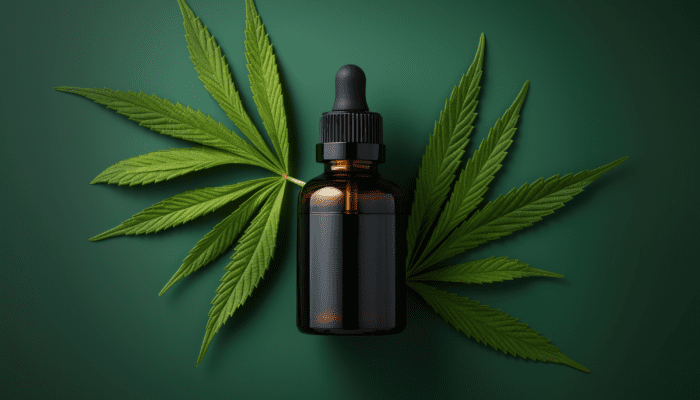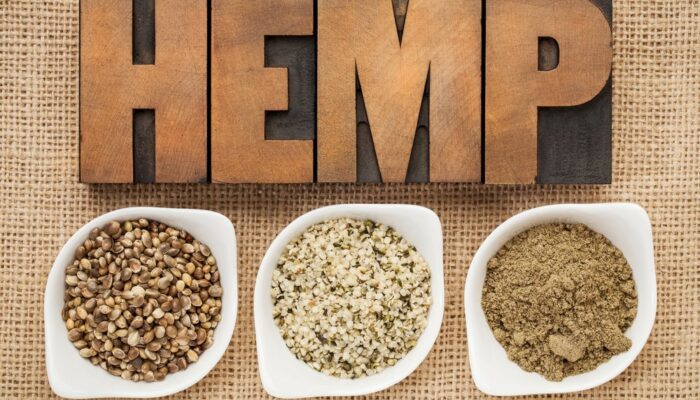What Is CBD?
It would be difficult for anyone to have not heard of Cannabis, or its cannabinoids, especially cannabidiol (CBD).

CBD is essentially a phytocannabinoid produced by hemp and marijuana plants. This major player in the pharmaceutical and nutraceutical worlds was first isolated in the late 1930s and its structure was discovered in 1963 (1). However, CBD went under the radar for several years until scientists started looking at its potential benefits in the 1970s.
Much like a massive snowball, CBD started to take the scientific world by storm, with a significant number of investigations looking at the benefits CBD has as an antipsychotic, an anti-anxiety, a pain-reliever, anti-inflammatory, and so on. Its ability to have such a profound beneficial impact on the human body, without the psychoactive effect, sees CBD as a new star in the pharmaceutical and nutraceutical realms across the world (2).
Over the past few years, the market for CBD has been growing exponentially, especially with new legislation allowing CBD to be used in food and beverages for all to enjoy. However, this does not come without complications. So, what is the legal landscape currently like for our superfood CBD?
What Is the Legal Status of CBD?
There is one word that epitomizes the legal landscape for CBD, and that is “complicated”. CBD is generally isolated from the “fiber” type Cannabis sativa plant known as hemp. Hemp is the strain of plant which has very little (less than 0.3%) of the psychoactive constituent THC. This means that hemp and its derivatives, such as CBD, do not have the same “mind-altering” effect as what you would expect from marijuana (3).
After being banned for decades, effectively nearly disappearing from the world after World War II, hemp made a considerable impact. This has been followed by a series of laws allowing its cultivation across the world. This has not been as simple for countries such as the USA (4).
While the Farm Bill (2018) technically permits the sale of hemp and its derivatives, such as CBD, the Federal Drug Enforcement Agency (FDA), has other ideas (5). The FDA stated that it would still consider CBD as a narcotic despite being legally permitted through legal interpretation of the Farm Bill (2018). This makes for selling CBD in the USA very complicated (6).
Nevertheless, while remaining complex at the federal level, at the state level it is a little bit more simple, with many states allowing the sale of food and beverages containing CBD. This is particularly beneficial, especially considering the benefits of consuming CBD has on our health. So, what are these?
What Are the Benefits of CBD?
The Brain
CBD has been shown to provide protective benefits against certain diseases of the brain, including Parkinson’s disease, dementia, and multiple sclerosis (7). This is suggested to be through CBD’s ability to act as an antioxidant, reducing the amount of damaging free radicals in the brain. Scientists have even found that CBD can promote more acute issues such as the damage caused by traumatic brain injury and stroke (8).
Diabetes
The therapeutic effect of CBD on diabetes has been investigated by many scientists. They have found that if you are given CBD during the latent diabetes stage or the initial symptoms of diabetes, there is a complete reduction in manifestation of the disease. This is substantial, considering diabetes is one of the biggest diseases impacting the current population (9).
Anti-Nausea
CBD is a powerful anti-nausea, completely stopping vomiting. This is even more effective than other synthetic anti-nausea medications available, such as ondansetron (10).
Anxiety
The effect CBD has on anxiety has been well known for several years and is one of the more popular benefits of taking CBD. Scientists have been looking at this for well over 20 years. They have found that CBD significantly decreases subjective anxiety, increases the ability to sleep, and reduces depressive symptoms (11).
Cancer
Scientists have been looking at the impact CBD has on cancer as early as the 1970s. Since then, there has been an incredible number of studies looking at its ability to reduce tumor growth. For example, it has been found that CBD can reduce tumor growth by up to half. These included tumors from breast and lung cancers (12). CBD has also been found to reduce the number of leukemia cancer cells by 61% alone, or 93% when paired with radiation therapy (13).
CBD, the Growth of a Superfood
The market for CBD-containing food and beverages is ever increasing, with some expecting the market to increase to $3 billion alone in the USA. Considering the long list of benefits CBD has, this expected rise is not surprising. Licensed hemp acreage in the USA has also risen to 499, 362 in 2019 from 9,770 in 2016. This increase is substantial and reflects the growing momentum of CBD as a new superfood in beverages and food (14).
As a result of the ever-expanding market, it is important for companies producing CBD-containing foods and beverages to select only high-quality CBD, especially that produced by Silver Lion Farms, funded by John Paul Dejoria.
The Bottom Line
CBD-containing foods and beverages is an ever-expanding market set to explode over the coming years. Along with a myriad of benefits for our brain and body, the legal landscape looks set to markedly ease some of the confusion around selling these products. This is especially so in the USA. Considering some exciting changes to come, it is time to prepare for the CBD revolution.





